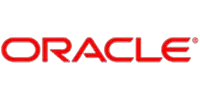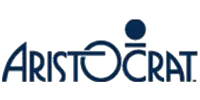Creating the Perfect Event, Together
Tell us about your event, and hire4event will craft an experience you'll cherish forever. Start planning today!
Tell us about your event, and hire4event will craft an experience you'll cherish forever. Start planning today!
Book Best Artist From Popular Cities
Book Best Artist For Overseas Locations
Book Top Event Venues in Popular Cities
Book Top Event Equipment for Rent in Popular Cities
Interesting information
Hire4event is one of the top and best exhibition and seminar management companies in Delhi, Noida, and Gurgaon. Contact us for exhibition management, stall design and fabrication. If you are looking for exhibition management services in Delhi, Noida, and Gurgaon, there are several companies and event management firms that specialise in organising exhibitions.
Hire4event will assist you with various aspects of exhibition management, including venue selection, booth design and construction, logistics, promotion, and overall event coordination. Hire4event is a highly reputed exhibition management company in the Delhi-NCR region.
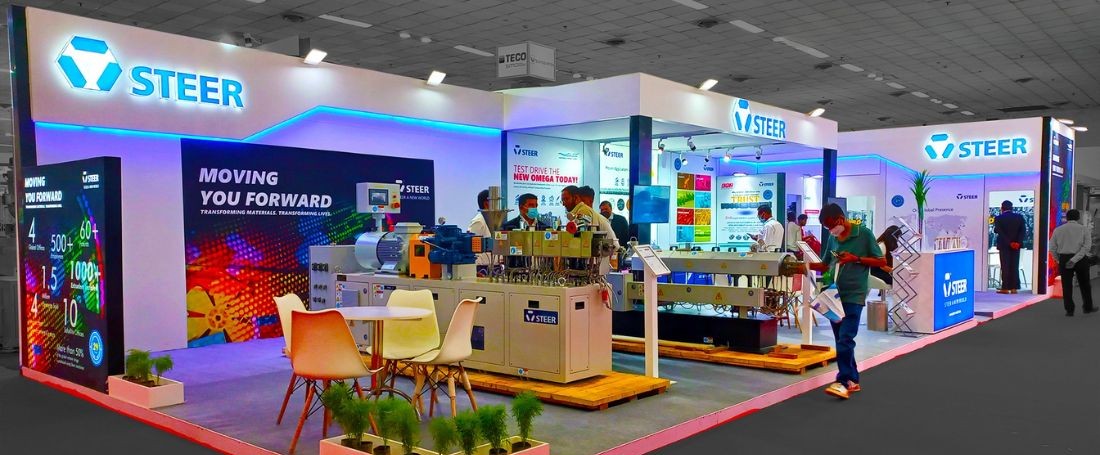
• Define your exhibition goals: Determine the purpose of your exhibition, whether it's to showcase products, generate leads, build brand awareness, or establish industry connections. Clear goals will help you plan the event effectively.
• Create a budget: Determine your budget for the exhibition, including expenses such as venue rental, booth construction, marketing, staffing, and other associated costs. Having a budget will guide your decision-making process.
• Select a suitable venue: Research and identify suitable exhibition venues in Delhi, Noida, or Gurgaon that can accommodate your expected number of attendees and provide the necessary facilities. Consider factors such as accessibility, parking, and amenities.
• Booth design and construction: Work on the design and layout of your exhibition booth. Consider hiring a professional booth designer or a team to create an attractive and functional display. Ensure that the booth represents your brand effectively.
• Logistics and coordination: Arrange for logistics such as transportation, storage, and installation of exhibition materials and products. Coordinate with vendors and suppliers for any additional requirements, such as audio-visual equipment, lighting, and furniture.
• Promote your exhibition: Develop a comprehensive marketing plan to promote your exhibition. Utilise various channels, such as social media, email marketing, press releases, and industry-specific publications, to reach your target audience and generate interest.
• Manage registrations: Set up a registration system to track attendees and manage ticket sales, if applicable. Consider using online platforms or registration software to streamline the process.
• Coordinate with exhibitors: If your exhibition involves multiple exhibitors, communicate with them regularly to ensure they have the necessary information and support. Provide them with guidelines, timelines, and any additional assistance they may need.
• Staffing and on-site management: Recruit and train a team to manage the exhibition on-site. Assign roles and responsibilities to ensure smooth operations during the event. Provide clear instructions and guidelines for all staff members.
• Evaluate and follow-up: After the exhibition, evaluate its success based on your predefined goals. Analyse attendee feedback, lead generation, and overall event performance. Follow up with leads and prospects to maximise the exhibition's impact.
Remember, these are general guidelines, and the specific requirements of your exhibition may vary. It's always advisable to work with a professional exhibition management company or consult with experienced event organisers to ensure a successful exhibition in Delhi, Noida, or Gurgaon.
When planning an exhibition, there are several important factors to consider. Here are some key aspects you should keep in mind:
1. Objectives: Clearly define the objectives of your exhibition. Determine what you want to achieve from the event, whether it's generating leads, increasing brand awareness, launching new products, networking, or fostering industry collaborations.
2. Target Audience: Identify your target audience and understand their needs, preferences, and expectations. Tailor your exhibition to cater to their interests, and ensure that your offerings align with their requirements.
3. Budget: Establish a realistic budget for your exhibition. Consider all the expenses involved, including venue rental, booth construction, marketing, staffing, logistics, and any additional services you may require. Allocate funds accordingly to ensure a well-rounded event.
4. Venue Selection: Choose a suitable venue that can accommodate your expected number of attendees and offers the necessary facilities for your exhibition. Consider factors such as location, accessibility, parking, space layout, amenities, and any specific requirements you may have.
5. Exhibition Layout: Plan the layout of your exhibition space, including the placement of booths, walkways, common areas, and interactive zones. Ensure that the flow of traffic is smooth and that there is ample space for attendees to navigate comfortably.
6. Booth Design: Create an engaging and visually appealing booth design that reflects your brand identity. Consider factors such as the size of the booth, signage, displays, lighting, interactive elements, and any specific requirements to showcase your products or services effectively.
7. Marketing and Promotion: Develop a comprehensive marketing and promotion strategy to create awareness and attract attendees. Utilise various channels, such as social media, email marketing, website promotion, press releases, industry partnerships, and targeted advertising, to reach your desired audience.
8. Exhibitor Management: If your exhibition involves multiple exhibitors, establish a streamlined process for exhibitor registration, booth allocation, and communication. Provide guidelines, timelines, and support to ensure exhibitors have a positive experience.
9. Logistics and Operations: Plan logistics such as transportation, storage, set-up, and tear-down of exhibition materials. Coordinate with vendors, suppliers, and service providers for any additional requirements, such as audio-visual equipment, furniture, catering, or security.
10. On-site Management: Develop a detailed schedule and allocate responsibilities to your team members or event staff. Ensure smooth operations during the exhibition, including attendee registration, information services, crowd management, and handling any unforeseen situations.
11. Evaluation and Follow-up: Establish methods to measure the success of your exhibition, such as attendee feedback, lead generation, sales conversions, media coverage, and return on investment. Collect data and analyse the results to make informed decisions for future exhibitions. Follow up with leads and prospects to maximise the impact of the event.
By considering these aspects during your exhibition planning process, you can create a well-organized and successful event that meets your objectives and leaves a lasting impression on attendees and participants.
When planning an exhibition, there are several key elements to consider. These elements contribute to the overall success and impact of the exhibition. Here are some essential elements:
• Theme and Concept: Choose a theme or concept that aligns with your objectives and resonates with your target audience. The theme sets the tone and guides the overall design and content of the exhibition.
• Venue Selection: Select a suitable venue that can accommodate your exhibition requirements. Consider factors such as space availability, layout, amenities, accessibility, and parking. The venue should align with your exhibition theme and provide a conducive environment for attendees.
• Booth Design and Layout: Design attractive and functional booths for exhibitors to showcase their products or services. Consider the flow of traffic, ease of navigation, and visual appeal. Ensure that each booth reflects the exhibitor's branding and effectively communicates their message.
• Signage and Branding: Use compelling signage and branding elements throughout the exhibition to create a cohesive and visually appealing environment. Clear signage helps attendees navigate the exhibition and locate specific booths or areas of interest.
• Interactive Elements: Incorporate interactive elements to engage attendees and create memorable experiences. This can include interactive displays, demonstrations, virtual reality experiences, games, or hands-on activities that encourage participation and interaction.
• Content and Information: Provide relevant and valuable content to educate and inform attendees. This can include product demonstrations, presentations, workshops, panel discussions, or guest speakers. Ensure that the content aligns with the exhibition's theme and adds value to the attendees' experience.
• Networking Opportunities: Create opportunities for networking and collaboration among attendees, exhibitors, and industry professionals. This can include designated networking areas, matchmaking sessions, business lounges, or social events that facilitate meaningful connections.
• Technology Integration: Leverage technology to enhance the exhibition experience. This can include interactive touchscreens, augmented reality (AR) or virtual reality (VR) experiences, mobile apps for exhibitor and attendee engagement, live streaming of sessions, or social media integration for real-time updates.
• Visitor Engagement: Provide engaging activities and experiences to captivate attendees. This can include contests, giveaways, live performances, product sampling, or interactive installations that encourage participation and leave a lasting impression.
• Marketing and Promotion: Develop a comprehensive marketing and promotion strategy to create awareness and attract the target audience. Utilise various channels, such as social media, email marketing, website promotion, press releases, advertising, and partnerships, to reach a wider audience.
• Logistics and Operations: Plan and manage logistics and operations effectively. This includes attendee registration, ticketing, security, crowd management, on-site facilities, audio-visual requirements, exhibitor services, and overall event coordination.
• Evaluation and Follow-up: Establish methods to evaluate the success of the exhibition, gather feedback from attendees and exhibitors, and measure the achievement of your objectives. Follow up with leads, prospects, and exhibitors after the exhibition to nurture relationships and maximise the impact of the event.
These elements work together to create a well-rounded and impactful exhibition experience for both exhibitors and attendees. Careful consideration and planning of each element will contribute to the overall success of the exhibition.
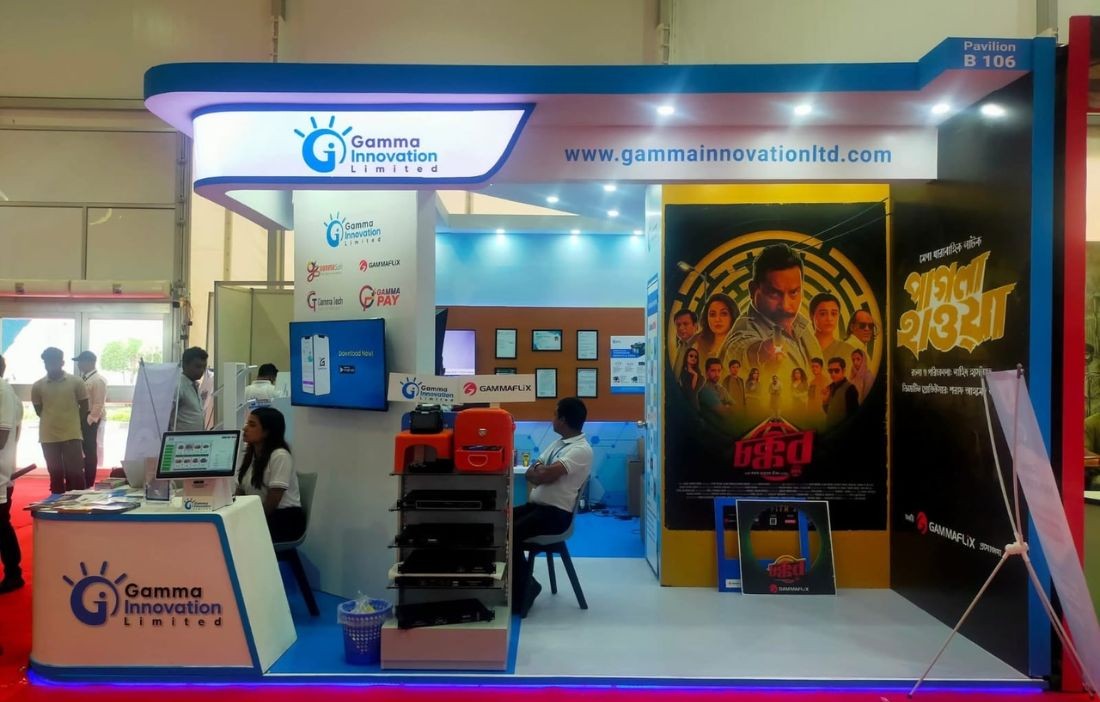
Hire4Event is a comprehensive event management company that specialises in providing a wide range of services related to exhibitions and trade shows. They offer end-to-end solutions to handle all the elements mentioned above, ensuring a seamless and successful exhibition experience. Here's how Hire4Event deals with each of these services:
• Theme and Concept: Hire4Event works closely with clients to understand their objectives and vision for the exhibition. They help in developing a compelling theme and concept that aligns with the client's goals and resonates with the target audience.
• Venue Selection: With their extensive network and experience in the industry, Hire4Event assists in selecting the most suitable venue for the exhibition. They consider factors such as space requirements, location, accessibility, and amenities to ensure the venue meets the client's specific needs.
• Booth Design and Layout: Hire4Event has a team of skilled professionals who specialise in booth design and construction. They create captivating and functional booth layouts that effectively represent the exhibitors' brands and attract attention.
• Signage and branding: Hire4Event provides comprehensive branding and signage solutions for exhibitions. They design and produce impactful signage, banners, and branding elements that reinforce the exhibition's theme and enhance the overall visual appeal.
• Interactive Elements: Hire4Event understands the importance of engaging attendees through interactive experiences. They offer a range of interactive solutions, including cutting-edge technology integrations, immersive displays, virtual reality experiences, and gamification to enhance attendee engagement.
• Content and Information: Hire4Event helps curate informative and engaging content for the exhibition. They collaborate with exhibitors and industry experts to organise presentations, workshops, panel discussions, and other knowledge-sharing sessions that add value to the attendees' experience.
• Networking Opportunities: Hire4Event recognises the significance of networking at exhibitions and provides dedicated networking zones and activities to facilitate meaningful connections. They organise matchmaking sessions, business lounges, and social events to encourage networking and collaboration among attendees and exhibitors.
• Technology Integration: Hire4Event stays up-to-date with the latest event technologies and can seamlessly integrate them into the exhibition. From interactive touchscreens to live streaming capabilities, they leverage technology to enhance attendee experiences and create a tech-savvy environment.
• Visitor Engagement: Hire4Event offers various engagement strategies and activities to captivate attendees and create lasting impressions. They organise contests, giveaways, live performances, experiential installations, and product sampling to ensure attendees are actively involved in the exhibition.
• Marketing and Promotion: Hire4Event has expertise in marketing and promotion. They develop comprehensive strategies to create awareness about the exhibition through digital marketing, social media campaigns, email marketing, website promotions, and targeted advertising to attract the desired audience.
• Logistics and Operations: Hire4Event takes care of all logistical aspects of exhibition planning, including attendee registration, ticketing, security arrangements, crowd management, vendor coordination, and overall event operations. Their experienced team ensures smooth execution and seamless operations throughout the exhibition.
• Evaluation and Follow-up: Hire4Event assists in evaluating the success of the exhibition by collecting feedback from attendees and exhibitors. They analyse the data and provide valuable insights to the client for future improvements. Additionally, they offer support in post-exhibition follow-ups with leads, prospects, and exhibitors to maximise the exhibition's impact.
Hire4Event's comprehensive approach and expertise in exhibition management make them a reliable partner for clients looking to organise successful exhibitions. Their dedication to delivering high-quality services across all aspects of exhibition planning ensures that clients can focus on their core objectives while leaving the logistics and execution in capable hands.
If you're looking for seminar event organisation services, there are several aspects to consider. Here's a step-by-step guide to help you plan and organise a successful seminar event:
• Define the Objective: Determine the purpose of your seminar. Is it to educate, inspire, network, or promote a product/service? Clearly defining your objective will guide all subsequent planning decisions.
• Set a Budget: Determine how much you're willing to spend on the seminar event. This will help you make informed decisions about venue selection, marketing efforts, speakers, and other event elements.
• Select a Date and Venue: Choose a date and location that are convenient for your target audience and align with your budget. Consider factors like accessibility, capacity, facilities, and technical requirements.
• Develop a Programme: Create an agenda or programme for the seminar, including topics, sessions, speakers, and timings. Ensure the content is relevant, engaging, and tailored to your audience's needs.
• Secure Speakers and Presenters: Identify and invite knowledgeable speakers who can deliver valuable insights to your attendees. Confirm their availability, negotiate terms, and communicate expectations.
• Arrange Audiovisual Equipment: Determine the audiovisual requirements for your seminar, such as projectors, screens, microphones, sound systems, and lighting. Make arrangements to ensure a smooth presentation experience.
• Marketing and Promotion: Develop a marketing strategy to raise awareness about your seminar event. Utilise various channels, like social media, email newsletters, websites, and partnerships, to reach your target audience.
• Registration and Ticketing: Set up an online registration system to collect attendee information and manage ticket sales. Provide different ticket options, such as early bird discounts or VIP packages, if applicable.
• Coordinate Logistics: Pay attention to logistical details such as transportation, accommodation, catering, and on-site registration. Ensure a seamless experience for attendees from start to finish.
• On-Site Management: Have a dedicated team to manage the event on the day(s) of the seminar. This includes coordinating speakers, handling technical aspects, overseeing attendee registration, and addressing any unforeseen issues.
• Evaluation and Follow-Up: Collect feedback from attendees to gauge their satisfaction and identify areas for improvement. Follow up with participants after the event, provide resources or recordings, and thank them for their participation.
If you prefer to outsource the seminar event organisation, there are professional event management companies that specialise in organising such events. They can handle various aspects, from planning and logistics to marketing and on-site management. Research reputable event organisers in your area and discuss your requirements and budget with them to determine if their services align with your needs.
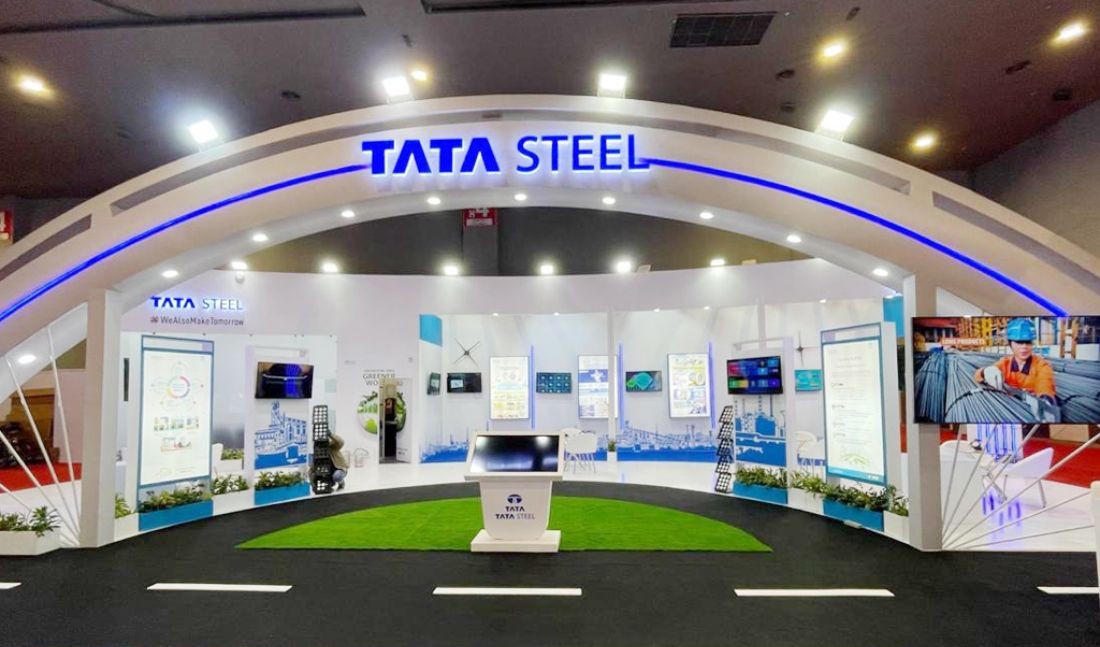
If Hire4Event offers services for organising exhibitions and seminars, they likely provide comprehensive event management services tailored to these specific types of events. Here are some key aspects that Hire4Event or any event management company might handle when organising exhibitions and seminars:
Venue Selection: Hire4Event can help you find and secure an appropriate venue for your exhibition or seminar. They will consider factors such as space requirements, location, accessibility, facilities, and cost to ensure the venue meets your event's needs.
Floor Plan and Booth Layout: For exhibitions, Hire4Event can assist in creating an effective floor plan and booth layout to maximise exhibitor and attendee engagement. They will work with you to design a layout that optimises traffic flow and showcases exhibitors' products or services.
Exhibitor Management: Hire4Event can handle exhibitor registration, booth allocation, and communication with exhibitors. They will coordinate logistics, provide exhibitor services, and ensure a smooth setup and breakdown process.
Seminar Programme Management: Hire4Event can help you develop an engaging and informative seminar programme. They will assist in selecting speakers, coordinating their schedules, managing presentations, and ensuring the overall flow of the seminar.
Audiovisual and Technical Support: Hire4Event can arrange the necessary audiovisual equipment, including projectors, screens, sound systems, and lighting. They will ensure that all technical requirements for presentations, demonstrations, and interactive sessions are met.
Marketing and Promotion: Hire4Event can devise a comprehensive marketing strategy to promote your exhibition or seminar. They may utilise various channels, such as social media, email marketing, digital advertising, and targeted outreach, to attract exhibitors and attendees.
Attendee Registration and Ticketing: Hire4Event can set up an online registration system for attendees to register for the exhibition or seminar. They will manage ticket sales, provide different ticket options, and handle attendee inquiries and support.
Logistics Management: Hire4Event will oversee logistics, including transportation, accommodation, catering, and on-site management. They will ensure a seamless experience for exhibitors, speakers, and attendees, taking care of details to create a professional and engaging environment.
On-Site Event Management: Hire4Event's team will be present on-site during the exhibition or seminar to manage the overall event operations. They will coordinate exhibitors, handle technical aspects, oversee registration, manage sessions, and address any on-site issues that may arise.
Evaluation and Follow-Up: After the event, Hire4Event can assist with gathering feedback from exhibitors and attendees to evaluate the success of the exhibition or seminar. They can provide post-event reports and analysis to help you understand the event's impact and identify areas for improvement.
Keep in mind that the specific services offered by Hire4Event or any event management company may vary. It's advisable to directly contact them and discuss your specific requirements, budget, and expectations to determine how they can tailor their services to meet your needs for organising exhibitions and seminars.




